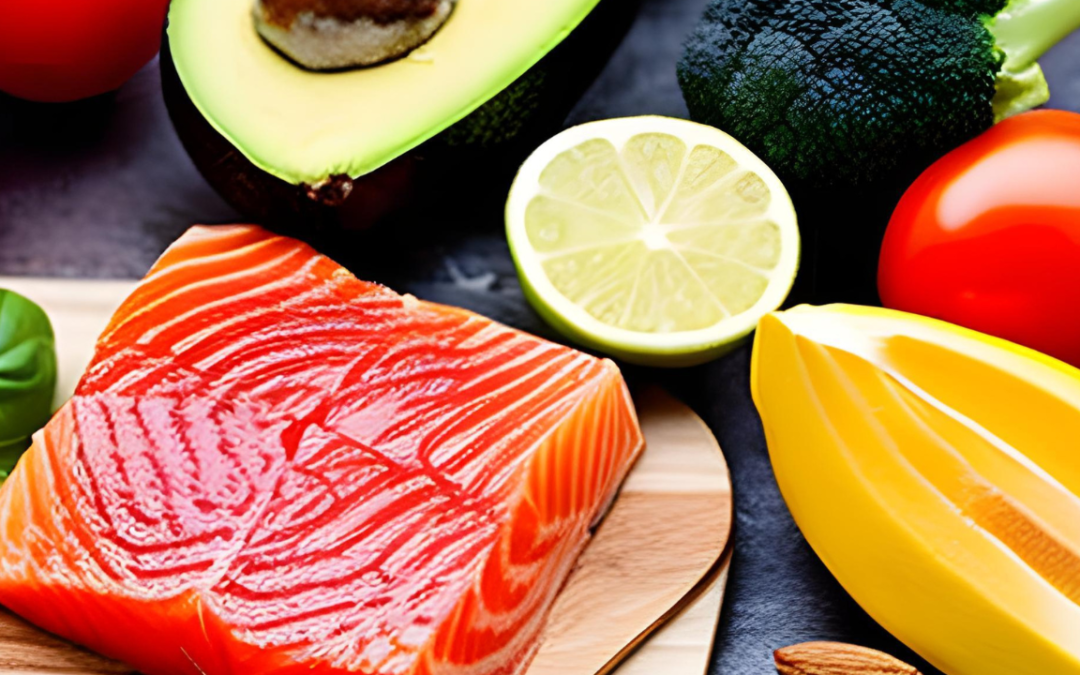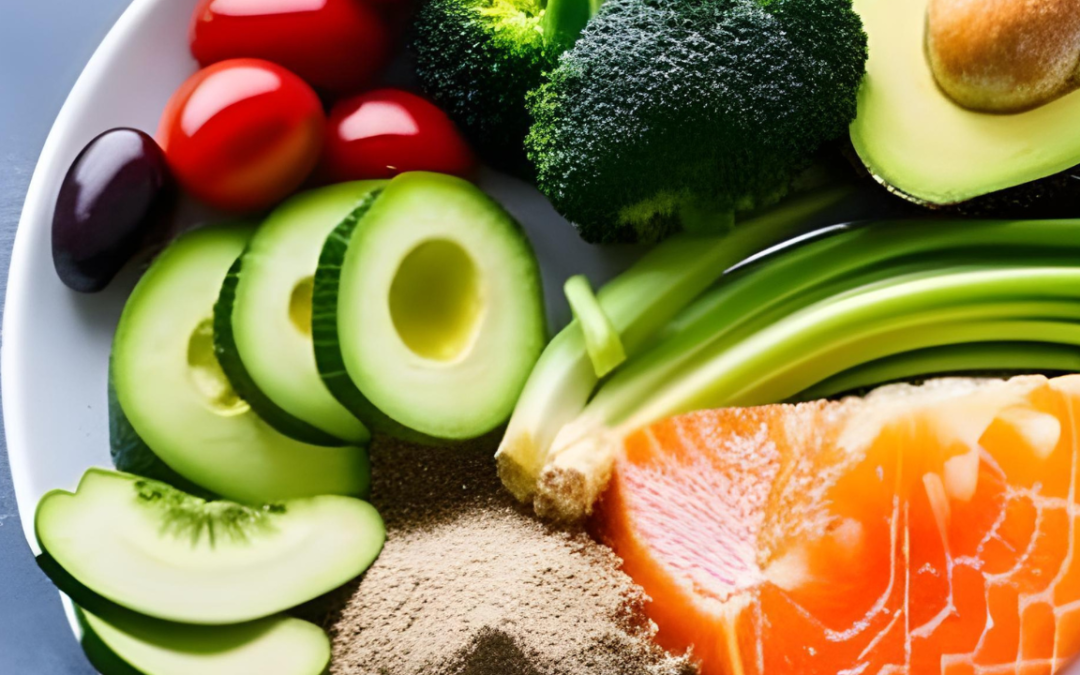Don’t let dehydration steal your health. Get tips for better energy, sharper focus, & disease prevention. Consult a doctor for serious symptoms.

The Most Wanted Nutrient Dense High Calorie Foods To Know
The Most Wanted Nutrient Dense High Calorie Foods To Know
The Most Wanted Nutrient Dense High Calorie Foods To Know
Understanding Nutrient Density and High Calorie Foods
In our daily meals, it’s often highlighted how crucial it is to choose foods packed with nutrients. All in all, what is the meaning of a food is full of nutrients? The idea of nutrient density is tied in with estimating the nutrients, minerals, and other significant stuff that keep us sound in our food contrasted with the number of calories it has. It’s like ensuring every calorie you consume is packed with the nourishing goodness your body craves.
Conversely, foods that are heavy in calories pack a substantial number of calories per portion. Though often linked with piling on pounds, it’s key to note that not all food rich in calories are cut from the same cloth.
Some can be incredibly nutrient-dense, providing a wealth of essential nutrients alongside those extra calories. Let us jump into the domain of food sources that are both wealthy in nutrients and high in calories, uncovering how they can be useful for various individuals.
The Importance of Nutrient Dense High Calorie Foods
Foods rich in nutrients yet high in calories are key for sustaining a healthy weight and overall health. For those who find it tough to gain weight, these nourishing, calorie-rich options can help them meet their target size.
It’s key to pick eats that pack not just a calorie punch, but also a bounty of vital goodies your body needs. This guarantees your system is stocked with the necessary elements it craves to run like a well-oiled machine.
Moreover, food varieties loaded with both nutrient and high calorie levels are worthwhile for the people who lead a lively way of life or participate in sports. When you’re pushing your limits with exercise, your body craves extra fuel to power through.
To power through exercise and bounce back afterward, loading up on foods filled with energy is key to keeping muscles moving and repairing them once the workout winds down. Athletes who weave calorie-rich and nutrient-packed foods into their diets not only hit their calorie targets but also supply their bodies with vital nourishment.
Nutrient Dense High Calorie Foods for Weight Gain
If you’re aiming to put on weight the right way, foods that are packed with nutrients yet heavy in calories can make a real difference. These nutrient-rich high-calorie foods enable the consumption of additional calories without compromising nutrition.
Great choices like almonds and pumpkin seeds, creamy avocados, spreads made from nuts, hearty whole grains, and rich yogurts not only give you more boom for your calorie buck but also deliver a wealth of vital nutrients. These nutrient-packed foods like healthy fats, fiber, and protein are stuffed with not only calories but also essentials we need.
Tossing a few almonds into your breakfast shake or layering mashed avocado on your morning slice of bread can seamlessly weave these nutritious elements into your daily meal plan. Switching up your daily food choices bit by bit can help you intelligently boost the calories you consume, fostering a healthy climb in body weight.
Nutrient Dense High Calorie Foods for Athletes and Active Individuals
Athletes and active individuals have unique nutritional needs due to their higher energy expenditure. To meet these demands, nutrient-dense high-calorie foods become even more important. To boost their dynamic schedules and heal suitably, these people need a combination of carbs, proteins, and beneficial fats for energy and healing.
For fueling up and mending muscles, sporty folks might opt for lean meats like poultry or sea-dwellers, intricate carbs such as yams or seeds of the goosefoot plant, and wholesome lipids from swimmers in cold waters or pressed fruit of Olea europaea.
These foods give the body the stuff it needs, like power and things that help it work right, so athletes can play their best and their muscles get strong and heal after hard workouts.
Nutrient Dense High Calorie Foods for Individuals with Certain Medical Conditions
While nutrient-dense high-calorie foods are generally beneficial for most individuals, there are specific medical conditions in which they play a vital role. For example, individuals with conditions such as cancer, HIV/AIDS, or eating disorders may experience unintentional weight loss or have increased energy needs.
In such scenarios, adding foods rich in nutrients and high in calories to one’s meals can assist with weight stabilization or gain while bolstering overall well-being. For a boost in calories, try blending up rich smoothies, munching on dense snacks like nuts and dried fruits mixed or chewy energy bars, and consider adding specially designed shakes or other supplemental eats to your routine.
Individuals with ailments should team up intimately with a medical care proficient or enrolled dietitian to ensure their nourishing necessities are being met.
Incorporating Nutrient Dense High Calorie Foods into Your Diet
One way we can work more nutrient-packed, calorically dense foods into our daily menu is to toss in or top off our meals with ingredients that will enhance their nutritional value and energy content. One simple way is to add calorie-dense toppings or ingredients to your meals. For example, sprinkle some nuts or seeds on your salad, drizzle olive oil on your vegetables, or top your yogurt with granola.
Another strategy is to blend nutrient-dense high-calorie foods into smoothies or shakes. Toss in a spoonful of almond spread, a chunk of creamy avocado, or a scoop of muscle-building protein powder to give your drink an extra kick and ramp up its health factor. You might also want to try sautéing with wholesome coconut oil or choose rich, full-fat milk products when you’re whipping up your meals.
Recipes and Meal Ideas Using Nutrient Dense High Calorie Foods
Here are a few recipe ideas that incorporate nutrient-dense high-calorie foods:
1. Avocado and Chicken Wrap: Fill a whole grain wrap with sliced avocado, grilled chicken, leafy greens, and a drizzle of olive oil.
2. Quinoa Salad with Nuts and Seeds: Cook a bunch of quinoas and throw it with blended nuts, pumpkin seeds, dried cranberries, and a lemon vinaigrette.
3. Sweet Potato and Black Bean Bowl: Cook the sweet potatoes in coconut oil until they’re cooked, then toss them with simmered black beans, wilted spinach leaves, and top it off with a scoop of tangy Greek yogurt.
These scrumptious dishes are spilling over with fundamental nutrients and thick in calories, ideal for those attempting to increase their energy utilization.
Tips for Shopping and Meal Planning with Nutrient Dense High Calorie Foods
When you’re mapping out your grocery trip and meal preparation, remember to focus on stocking up with foods that pack a nutritional punch along with plenty of calories. Before you go to the store, write down an inventory of the relative multitude of elements you’ll require for your nutrient-packed, high-energy meals. Crafting a shopping inventory beforehand keeps you on track and helps control spontaneous buys that weren’t in your plan.
Next, opt for fresh, whole foods whenever possible. Opt for unprocessed, whole foods which are usually packed with more nutrients and offer a variety of vital nourishment. Additionally, consider buying in bulk to save money and have a steady supply of nutrient-dense high-calorie foods at home.
Setting up your meals ahead of time can alter the way you coordinate these nutrient rich food sources into your everyday eating schedule. Take some time each week to plan and prepare your meals in advance. By dedicating a slice of your week to mapping out and whipping up your meals, you’ll not only carve out more time for yourself but also guarantee that wholesome eats are at hand when hunger strikes.
Potential Risks and Considerations When Consuming Nutrient Dense High Calorie Foods
While nutrient-dense high-calorie foods offer numerous benefits, it’s essential to consider potential risks and limitations. It is vital to consult a medical professional to determine suitable portion sizes and nutritional balance for your personal health status. Partnering with a health expert is vital to tailor the exact serving sizes and nutrient mix suited for your unique health profile.
Moreover, it’s critical that weight gain ought to be moved toward in a healthy and reasonable manner. Just expanding your calorie admission disregarding the nature of the food varieties you’re devouring can prompt undesirable weight gain and potential medical problems. Center around integrating nutrient-dense high-calorie foods sources into a balanced eating routine that incorporates various fruits, vegetables, lean proteins, and whole grains.
In summary, it’s important to remember that increasing nutrients and calories admission in a sound, economical way – by zeroing in on nutrient rich food sources across nutritional categories – upholds objectives like weight gain while limiting potential well-being risks.
As a matter of fact, food varieties rich in nutrients and high in calories can be a vital piece of your eating routine, whether you want to gain weight, fuel your workouts, or support your overall health.
They sneak up suddenly with essential nourishments while fulfilling your body’s need for fuel. If you’re on a quest to bulk up, energize your gym sessions, or simply bolster your well-being, weaving these nutrient-packed heavy-hitters into your daily diet can make a real difference.
Remember to choose a variety of nutrient-dense high-calorie foods that suit your taste preferences and dietary needs.
Attempt various things with recipes, meal considerations, and different cooking techniques to keep your foods empowering and tasty. Embracing gradual yet consistent changes in your food decisions can fuel your body with the crucial nourishment it requirements to thrive.
RELATED POSTS
Dehydration The Silent Killer That’s Costing You Your Health
Sustainable Eating: How To Make A Positive Impact On The Planet
Sustainable eating. It’s all about making food choices that are not only good for you, but also good for the planet.
The Best Whole Foods Vegan Desserts For Health-Conscious Individuals
Discover delicious and healthy whole foods vegan desserts made from plant-based, unrefined ingredients. Try easy recipes, smart swaps, and top store-bought options for guilt-free indulgence.
FOLLOW DISCOVERY BLOGGER









